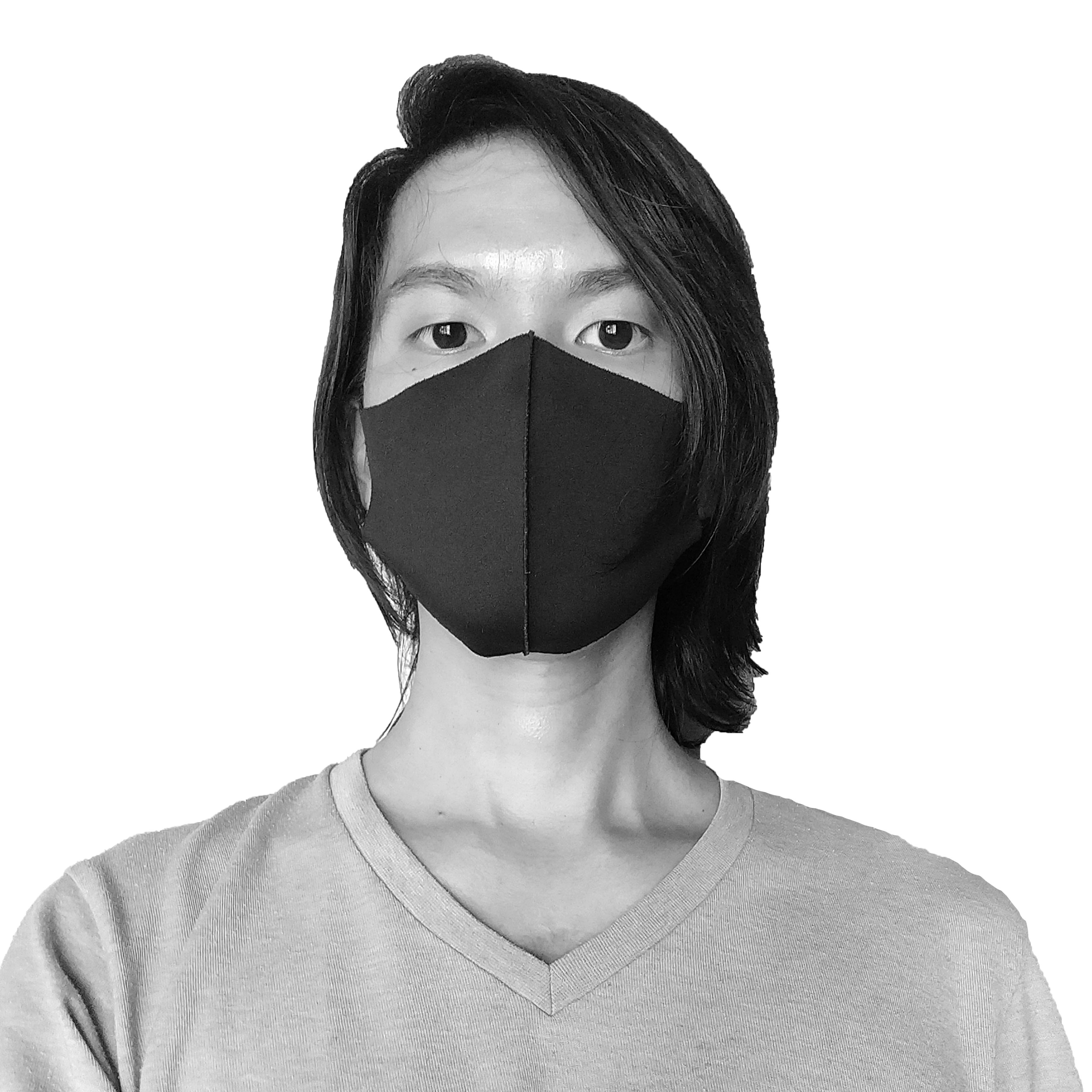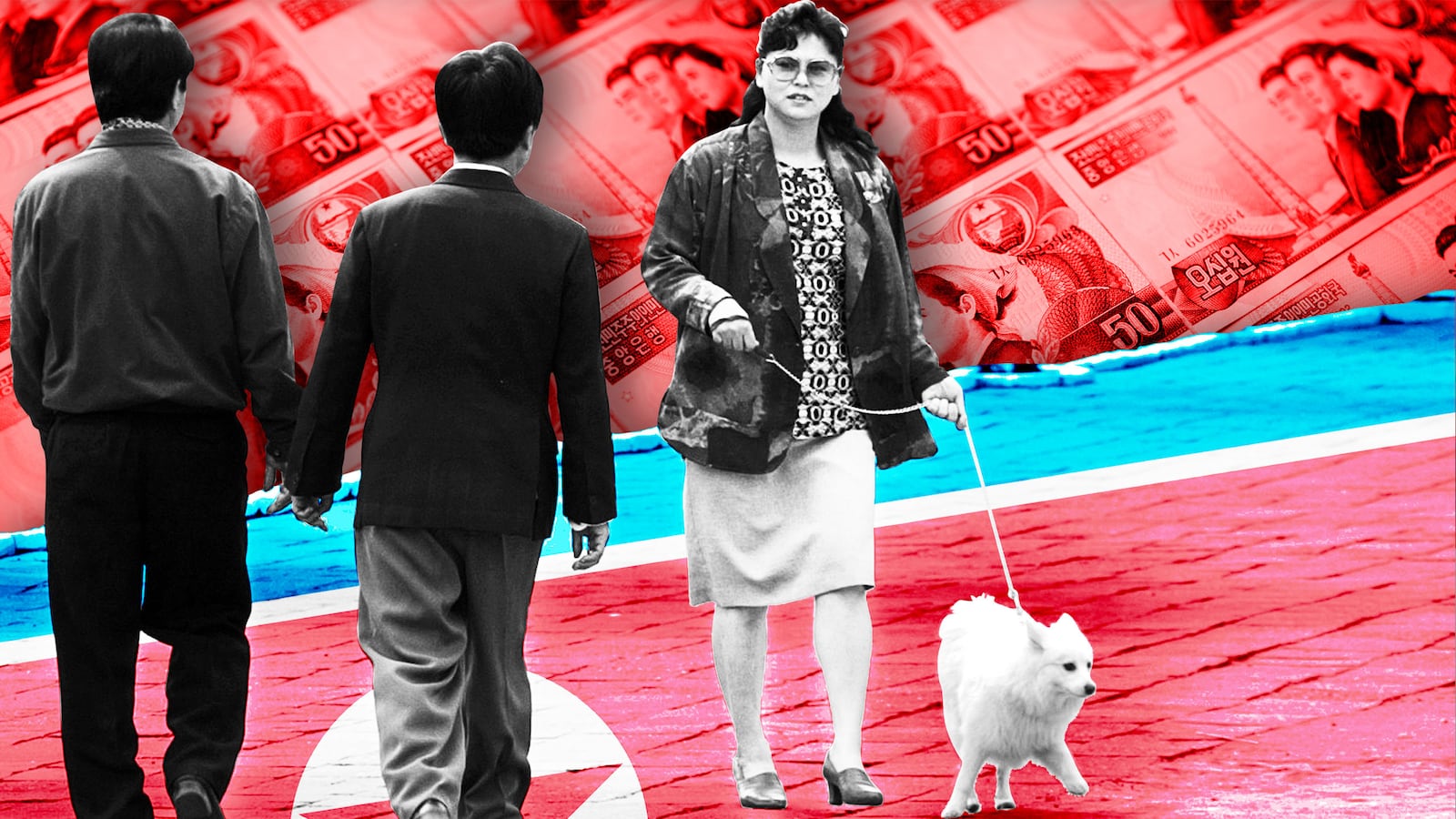HONG KONG—Civilian life in North Korea, with all of its limitations and shortcomings, is often imagined in the context of Kim Jong Un’s nuclear program or the Juche state’s ersatz grandiosity. Through those lenses, people are props that dance and cheer for the regime’s greatness on the empty boulevards of Pyongyang, or they’re human pixels hoisting sheets of colored cardboard in a stadium, or even fodder deployed as slave labor to fuel the costs of missile development and a despot’s venal lifestyle.
But visit locations where North Koreans have in past years built up their commercial interests—for instance, in northeast China and Southeast Asia—and complexity catches up. Although private business ventures generate foreign currency that is sent back to the political and military circles in Pyongyang, a class of North Korean citizen, the donju, or “masters of money,” have carved out their niche in the DPRK’s spheres of power.
The donju trade anything—clothes, everyday goods, media entertainment, apartments, cars. (Small arms, like the enormous shipment seized recently in Egypt, are a special sub-category.) And most prominent among the donju is Cha Chol Ma. His biography, like that of many influential but spectral figures in North Korea, is incomplete to outsiders. What’s known is that he is one of the wealthiest individuals—if not the richest man—in North Korea whose surname is not Kim. He is the son-in-law of the late Ri Je Kang, a Juche ideologue who mentored current Supreme Leader Kim Jong Un before the death of Kim Jong Il.
Cha was once active in the DPRK’s political machinery, serving in a top position in North Korea’s legislative body, the Supreme People’s Assembly, from 2012 until 2015 or 2016. But his departure from the political scene has led to the amassing of incredible fortunes, building upon already substantial assets. He has overseen major infrastructure projects, such as the construction of a children’s hospital and a research center that seeks to streamline the cultivation of mushrooms, as well as business developments in China and Pakistan.
Cha remains close with those who occupy key posts in the Kim regime, and limited public sightings of him place the man with powerful company, rubbing shoulders with the likes of the premier of the cabinet, Park Pong Ju, or state officials in the foreign countries where he operates.
It is the donju like Cha who are reshaping the fabric of society in Pyongyang, at least in superficial terms. Sixteen years ago, Kim Jong Il began the slow shift toward establishing a market economy in North Korea. However, it was not until 2012, shortly after his son Kim Jong Un took over the reins, that the policy really took off. The country’s gross domestic product was estimated by the Bank of Korea in Seoul to be $28.5 billion last year, meager compared to its southern neighbor but still a huge increase from $12.4 billion in 2011.
Now, in the North Korean capital, young men and women spend hours in gyms each day to see and be seen; their wardrobes are packed with apparel from fast fashion outlets such as Zara or H&M, as well as handbags and accessories from the standard roster of Western European luxury brands.
Even those who still dress conservatively have their articles of vanity—perhaps a small Italian bag that holds cash and one or two smartphones, clutched not-so-discreetly under one arm as they head to the next business meeting. This is a marked disparity from the average monthly wage in North Korea, which is the equivalent of a few dozen dollars a month.
Over the border, China sees partial echoes of itself in these reforms (if they can be called that). The massive improvement in the standard of living is similar to what the Chinese population experienced in the 1980s and ’90s, after the Chinese Communist Party loosened its grip on some facets of life.
But Kim’s constant, belligerent bluster and U.S. President Donald Trump’s equally stormy responses, mean that armed conflict is a perpetual possibility, and as Beijing appears to be growing weary of such brinksmanship, its first targets would seem to be among the donju.
In late September, China’s Ministry of Commerce issued a notice that North Korean companies functioning within Chinese borders, including joint ventures with Chinese firms, had 120 days to cease operations. This restriction reflects China’s adherence to the latest sanctions on North Korea by the United Nations Security Council—at least on paper.
But that move is at odds with what Chinese companies and their North Korean partners want, particularly those that are part of industries involving intensive manual labor. Last year, Chinese businesses that operate near the border with North Korea requested an increase in the allowed number of North Korean “guest” workers, mainly because of changes in domestic labor distribution. Chinese workers have been moving to other provinces, or even other countries, where wages are higher, creating a shortage of skilled hands in the northeastern region of China.
One number tells us just how much these businesses need cheap North Korean labor for backbreaking work: In 2012, 40,000 North Koreans legally entered China on industrial training visas, with many more seeking off-the-books employment after being trafficked into the country.
Even though China is officially sanctioning North Korea, it remains to be seen how that will be put into practice. In the meantime, the donju still thrive, and likely will navigate any new restrictions with calm composure.
After all, harsh conditions at home just mean that the black markets will again thrive and become key conduits for basic goods to reach those who can afford them. And that is how many of North Korea’s masters of money made their first buckets of gold. With better contacts than ever before, it’s a trope that they could easily revisit, providing Pyongyang’s denizens with all manners of comforts, no matter how crooked their business methodologies may be, or how much bluster they hear from Washington.





